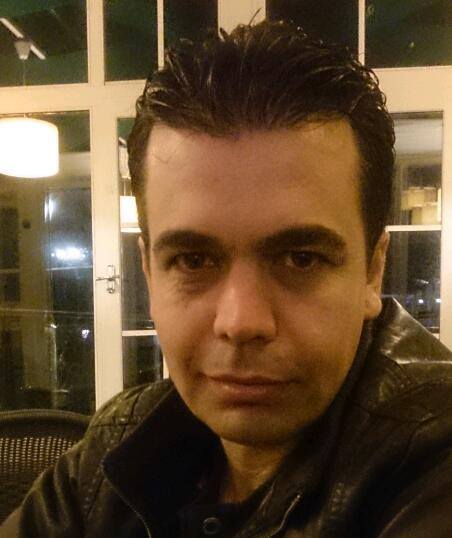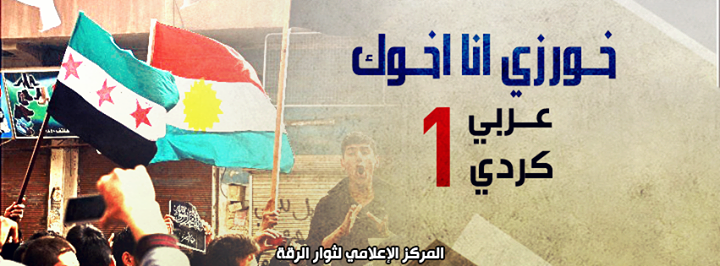This article forms part of a special series focused on Oral Culture and Identity in Syria.
It is the outcome of an ongoing partnership between SyriaUntold and openDemocracy’s North Africa West Asia in a bid to untangle the roots of sectarian, ethnic and other divides in Syria.
(Qamishli) Kurds and Arabs in the Jazira region have had good neighbourly ties for most of history. It may come as a surprise that tribal alliances mixing Arabic and Kurds were formed and fought against similarly composed composition depending on interests and local power struggles. But living in close proximity and under similar circumstances did not prevent the formation of stereotypes. On the contrary, there is a rich oral dictionary of terms, tales and proverbs ingraining stereotypical notions that has lasted for generations.
In Syria’s Jazeera region, Arabs and Kurds differ culturally, in terms of how they made a living and social traditions. Kurds made a quicker shift from nomad to urban life, while Arabs took longer to make that shift. Kurds became more developed in agriculture and raising cows and poultry, while Arabs herded cattle. Even now, Kurdish villages tend to be greener than that of Arabs While Kurds had a cultural elite of clerics and mullahs, Arabs did not, and they would resort to Kurdish clerics and mullahs in religious and legal matters. The new generation of Kurds tends to limit births to a certain number per person, while Arabs have more children. All these differences between Arabs and Kurds resulted in different ways of living and thinking, manifesting themselves in the oral heritage of both communities.
The Arabs in Kurdish insults and proverbs
Jazira’s Kurds have a rich oral heritage targeting their Arab neighbours. For starters, they refer to the Arabs as Shawaya [semi-sedentary tribes], which is usually considered a degrading term as it implies naivety and simplicity. Shawaya are Bedouins who recently settled down and became civilized, unlike the Arabs who have lived for centuries in major commercial cities like Damascus and Aleppo. Some Bedouin Arabs take pride in this label, although city dwellers use it to mock them, just like Upper Egypt citizens are joked about in Egypt. This oral heritage falls under the name-calling or insults, the use of mostly negative terms that seek to instil superiority and highlight the ignorance of “uncivilized” others.
Some Kurdish stories about Arabs and other Arab stories about Kurds are harsh and hateful. Often, the content of this oral culture passed from one generation to the next is not a completely faithful reflection of reality. Some stories, especially proverbs, may have entered the popular heritage dictionary under specific circumstances, or due to a particular incident. They reflect a specific experience and have nothing to do with the resulting stereotype that becomes permanently adopted by the other community. Just as frequently, the opposite may be true, the stereotype is built with negative and discriminatory intent, relegating a group to a position of inferiority and stigmatizing its modus vivendi. Shocking nicknames are deployed to mock a group’s way of thinking, the problem-solving techniques they apply to life, and even appearance.
The most common insults and expressions draw on the legacy of deep-rooted tribal tensions in the region known as east of the Euphrates. When a Kurdish child cries or feels pain due to sickness or injury, his mother tries to appease him and adds to the regular cuddling expressions a strange one that says, “May fire break out in the tents of Arabs.” Here, the mother is blaming the Arab community for her child’s tears and retaliates by cursing them verbally. The adage reflects a Kurdish irritability towards Arab tents in the region that has endured over generations. That sentiment dates back to that era when the child’s ancestors came into conflict with the Bedouins over land, water and pastures.
Most of the time, the expressions are just said randomly and might have lost their real implication. But they show how clearly negative stereotypes about Bedouin Arabs or Shawaya have endured in the mind of the Kurds. The negative image remains carved in people’s minds and is repeated in the spoken language – in this case Kurmanji, a Kurdish dialect mostly spoken in Syria and Turkey. [Syria’s Kurds also generally speak Arabic, except for the elderly who did not get the chance to mix with Arabs or study in schools following Arabic curricula imposed by successive Arab governments.] This oral heritage is drenched in the desire to offend and undermine the other.
“Don’t say hello to an Arab, they will sit on your Abaya [traditional attire consisting of a loose-fitting overgarment],” is another proverb commonly used by Jazira’s Kurds to typecast Arabs. The expression basically means “Beware of Arabs as they don’t know their limits.” It alludes to Arabs being nosey people, who meddle in the affairs of others and exploit their generosity. The saying is not used exclusively to describe Arabs. It can also be used by a Kurd to describe a fellow Kurd who is a gossip.
Kurds also use the expression “Arab Bazaar” to mean a hasty Arab deal that does not have clearly defined standards. Syrians also call this type of bargaining “kotra,” like when a client asks a grocer to sell him what is left in the tomato crate at a lowered price without weighing the product or calculating. This example reinforces the image of the Bedouin as someone who does not have a sense of accuracy in his transactions and resorts to simple innate sale and purchase operations. Ironically, Kurds will have what they call an “Arab Bath” which means washing the head and neck only without showering the whole body. This expression insinuates that Bedouins or Shawaya – who did not settle in villages and towns until the mid-20th century – do not take prioritize hygiene and just wash quickly, given their nomadic lifestyle.
To refer to a “gluttonous” or “avid” person, Kurds use another saying that goes, “Like an Arab who spotted soft cheese”. The expression also points to the poverty of Bedouin cuisine and the Shawaya’s appetite for unusual food. Manifest in this proverb is the superiority complex of Kurds, who feel they have led a civilized existence, relative to Arabs who followed a nomadic and simplistic life.
Past generations of Kurds called children who were born with dark skin “Arab” or “Arabo” while Arabs called their white-skinned children “Kurdi”. Giving newborn Kurds Arab names became restricted as of the early 1970s in Syria, and even Arab religious names were no longer common. Kurds at that time were reaffirming their national distinction and rejected any intellectual affiliation with the Arab culture. But Kurdish tribes would still call their children Arab names that scream Bedouin, exchanged visits and meals with their Arab neighbors, and in many instances marriages between Kurds and Arabs occurred.
Arabs in Kurdish music and dance
Kurds have always taken great pride in their musical heritage, their skill playing traditional musical instruments such as the tunbur [long-necked string instrument similar to the mandolin] and performing different types of Kurdish dabke [festive folk dance combining circle dancing with line dancing]. They often incorporate Arab dabke in their wedding celebrations, and share this dance with Arab guests, all the while mocking Arab weddings for having one kind of dabke. They sarcastically call this dabke “Dahdah”. Dahdah is an Arabic word that means a short and chubby person, and the aim here is to mock Arabs’ dance moves. An old Kurdish saying expresses shock towards Arabs playing the tunbur: “What do Arabs have to do with the mandolin?”
Despite the above, oral Kurdish heritage also includes the occasional praise for Arabs who live with Kurds in the same environment. As the saying goes, “O good Arab, you are better than a brother and father.”
Kurdish tribesmen also prided themselves on wearing the jellabiya [traditional long garment] and the agal [black cord worn on the head by Arab men] and would describe eminent and elegant figures as resembling Arab or Shammar sheikhs [tribal leaders; the Shammar are an influential Arab tribe expanding to Iraq, Jordan and Syria. It has a strong history of cooperation with Kurds.]
The epic songs, melodic poetry and old Kurdish mawawil [traditional genre of vocal music] constitute the most remarkable form of oral Kurdish heritage. They all include flirtatious references to tall Arab girls sporting black-lined eyes. The Kurdish folklore singer Shakro, who is based in Turkey, has the most beautiful and varied voice. His songs pay tribute to the beauty and attractiveness of the “Araba” [Arab female]. Arab tents made of goat fur are mentioned multiple times in those songs that have accompanied Kurds on their journeys. Similarly, Arab cities and people are mentioned in this type of oral heritage.
The Arab poet Hatim al-Tai of the Jahiliyya era [Arabia before the advent of Islam] and other famous Arab figures are an important part of Kurdish tales. The writings of Kurdish poet Ahmadi Khani [1650-1707], in what seems like the first clear invitation to Kurdish nationalism, compares the generosity of Kurdish princes to that of Tai.
The oral heritage of adjacent communities requires an accurate mechanism of documentation and data collection. No author can summarize decades and centuries of stories in a single paper or article. Arabs in the region have all had something negative and positive to say about Kurds. The documentation of these oral traditions must be accurate and daring. The past must be written down, even the oral part of it, by encouraging documentation. In particular, we should resort to voice recording for old people, who are the keepers of this this rich legacy. They are the ones most familiar with proverbs and tales that reflect the perspective of different communities towards each other across generations.





